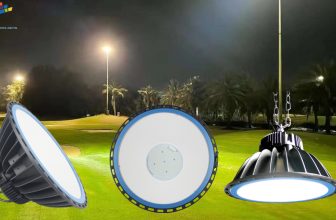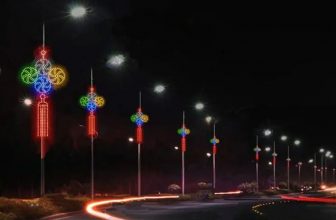The advent of LED technology has revolutionized the lighting industry, and outdoor LED lighting solutions have gained tremendous popularity due to their energy efficiency, longevity, and versatility. As outdoor LED manufacturing companies strive to meet growing global demand, adhering to essential certifications becomes paramount. Certificates not only ensure product quality and safety but also boost consumer confidence and open doors to international markets. In this comprehensive article, we will delve into the crucial certifications that outdoor LED manufacturing companies should attain, understanding their significance and implications.
1. Understanding the Importance of Certifications
Certifications are a stamp of approval that a product meets certain quality, safety, and performance standards. For outdoor LED manufacturing companies, certifications serve as a testament to the credibility and reliability of their products. They instill confidence in consumers and demonstrate compliance with regulations, both locally and globally. Achieving certifications can differentiate a company’s products in a competitive market, enhance brand reputation, and enable access to wider markets.
2. Essential Certifications for Outdoor LED Manufacturing Companies
2.1 UL Certification
Underwriters Laboratories (UL) certification is perhaps one of the most recognized certifications worldwide. UL ensures that products meet strict safety and performance standards. For outdoor LED lighting, UL 1598 is pertinent, covering luminaires intended for outdoor use. UL certification ensures protection against environmental factors, electrical safety, and fire hazards.
2.2 IP Rating
Ingress Protection (IP) rating is essential for outdoor LED lighting as it indicates the product’s ability to resist dust and moisture. An IP rating is expressed as “IPXX,” with the first digit referring to solid particle protection and the second digit indicating water resistance. For instance, a product with an IP65 rating is dust-tight and resistant to water jets. Achieving the appropriate IP rating ensures the longevity and reliability of outdoor LED fixtures in diverse weather conditions.
2.3 DLC Certification
DesignLights Consortium (DLC) certification focuses on energy efficiency and performance. It’s especially relevant for outdoor LED lighting in terms of energy savings and light output. DLC certification is crucial for companies targeting energy rebate programs and public sector projects that demand high-performance, energy-efficient lighting solutions.
2.4 CE Marking
The CE marking indicates compliance with European Union (EU) product safety directives. While not mandatory globally, CE marking is essential for companies looking to enter the European market. It ensures that the product meets health, safety, and environmental protection standards, making it a valuable certification for outdoor LED manufacturers with international aspirations.
2.5 RoHS Compliance
Restriction of Hazardous Substances (RoHS) compliance restricts the use of certain hazardous substances in electrical and electronic equipment. This certification is essential for demonstrating commitment to environmental sustainability and ensuring that products do not contain substances harmful to human health and the environment.
2.6 Energy Star Certification
Energy Star certification focuses on energy efficiency and is highly regarded in North America. It signifies that a product meets stringent energy consumption and performance criteria set by the U.S. Environmental Protection Agency (EPA). Outdoor LED lighting with Energy Star certification appeals to energy-conscious consumers and opens opportunities in utility rebate programs.
2.7 ISO 9001:2015
While not specific to LED lighting, ISO 9001:2015 certification is crucial for overall quality management systems. It demonstrates a company’s commitment to consistent quality, customer satisfaction, and continuous improvement. A well-implemented quality management system positively impacts all aspects of a business, including LED manufacturing processes.
3. Navigating the Certification Process
3.1 Preparing Documentation
Gathering all necessary documentation, such as technical specifications, test reports, and manufacturing processes, is the initial step. Ensuring that products meet the required standards is essential before undergoing testing.
3.2 Testing and Evaluation
Third-party testing laboratories evaluate products against specific standards. This process may involve environmental, safety, and performance tests to ensure the product’s suitability for outdoor use.
3.3 Application Submission
Certification bodies require manufacturers to submit applications and relevant documentation for review. The process may include site inspections, audits, and sample testing.
3.4 Compliance and Maintenance
Once certified, it’s crucial to maintain compliance by adhering to quality and safety standards. Regular audits and product testing are often necessary to ensure ongoing adherence.
4. Benefits of Certification
4.1 Enhanced Credibility and Trust
Certifications enhance a company’s credibility by providing external validation of product quality and safety. Consumers are more likely to trust certified products, leading to increased sales and customer loyalty.
4.2 Market Access
Certifications open doors to global markets by ensuring products meet specific requirements for different regions. This facilitates expansion and growth opportunities for outdoor LED manufacturing companies.
4.3 Competitive Advantage
Certified products stand out in a competitive market. Certification demonstrates a commitment to excellence, giving companies a distinct edge over non-certified competitors.
4.4 Regulatory Compliance
Certifications ensure compliance with local and international regulations. This minimizes legal risks and potential recalls, safeguarding a company’s reputation.
4.5 Innovation and Improvement
Certifications encourage companies to invest in research and development to meet evolving standards. This drives innovation and continuous improvement in product design and manufacturing processes.
5. Conclusion
In the dynamic world of outdoor LED lighting manufacturing, adhering to essential certifications is not just a choice; it’s a strategic imperative. Certifications validate product quality, safety, and performance, instilling consumer trust and opening doors to global markets. Whether it’s UL, CE, DLC, or any of the other certifications discussed, each plays a unique role in shaping the success of outdoor LED manufacturing companies. By understanding the importance of certifications and navigating the certification process effectively, companies can establish themselves as leaders in the industry, driving innovation, sustainability, and customer satisfaction.
Disclaimer: The information provided in this article is for informational purposes only and should not be considered as legal or professional advice. Companies should consult with appropriate certification bodies and experts for accurate guidance on certification requirements.








